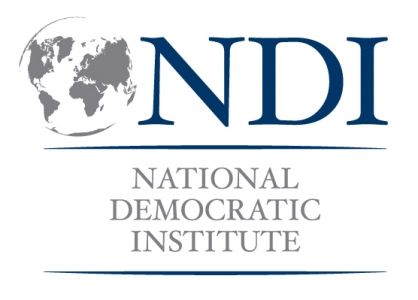
The Election Day was largely orderly but the period ahead of the runoff was divisive and marked by violence and intimidation, - a delegation of the National Democratic Institute that analyzed the election process has said.
“Democratic governance is Georgia’s most precious asset,” said the delegation. “It has set the country apart from its authoritarian neighbors and made possible the prospects for European and Euro-Atlantic integration. Squandering this asset would have immeasurable costs. It will be critical that Georgia not allow the conduct of this election campaign to define the country’s political life going forward.” The period ahead of the runoff experienced sporadic incidents of violence, reports of intimidation, and other practices that violated the spirit, and arguably the letter, of election laws. Campaign rhetoric grew even more aggressive and hostile between the two rounds, with messages of fear and threats of instability. The election lacked constructive debate on ideas, values, or visions for the presidency. Allegations of attempted vote buying and abuse of state resources were prominent. Election day proceeded in a largely orderly and calm manner, with election officials in the majority of stations performing their duties in a transparent manner, according to domestic observation efforts. Georgian voters expressed their will, with a higher turnout, 56.23 percent, than recent elections. There were sporadic, but serious, incidents of multiple voting and manipulation of the count, both directly observed by NDI monitors. The election administration should thoroughly investigate the critical violations during voting and the count.
“According to preliminary results, Georgian Dream (GD) supported candidate Salome Zourabichvili received 59.54 percent of the vote, and Grigol Vashadze, representing the United National Movement (UNM) from the eleven-party “Power Is in Unity” coalition, received 40.46 percent. These results appear to be confirmed by the International Society for Fair Elections and Democracy (ISFED) independent parallel vote tabulation (PVT) showing 59.1 percent for Zourabichvili and 40.9 percent for Vashadze. The delegation urges calm while the final results are tabulated and complaints addressed. “Heading into the 2020 parliamentary elections, it is this delegation’s hope that Georgians will reject the divisive and harmful practices of this election and work to build a more constructive political environment in which contenders compete on a level playing field and contend on the basis of policy differences relevant to citizens’ interests,” said the delegation. To that end, the delegation offered a number of recommendations ahead of the 2020 parliamentary elections, including:
Reported incidents of violence should be thoroughly and expeditiously investigated, and perpetrators brought to justice in a timely fashion, to send a strong and unequivocal message of zero tolerance; Parties should develop constructive, issue-based platforms to inspire voter confidence and rebuild faith in democratic processes; To address polarization and distrust, the government should consider developing a format for dialogue and reconciliation between state bodies, civil society organizations, and political parties, with an aim to improve political and electoral processes;
To address the polarization of the media landscape, efforts should be made to change the incentive structures and invest in improved journalistic practices. International donors should consider increased support for regional media and independent broadcasters;
Parliament should enhance whistleblower protection to encourage victims of intimidation or witnesses of other violations to come forward. Improved cooperation between law enforcement and observer groups ahead of the 2020 elections on this issue is encouraged; and Parliament should collaborate with the SAO to draft legislative changes and allocate sufficient financial resources to improve the efficacy of its work, better define contribution regulations, in which donors who are not affiliated with parties or electoral subjects are held accountable for their contributions, and empower the body with sufficient authority to conduct investigations, including penalties for non-compliance,” the NDI said.
v-if="article.gallery" v-html="article.gallery"
(adsbygoogle = window.adsbygoogle || []).push({});